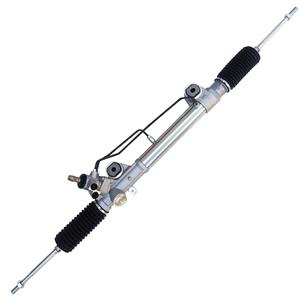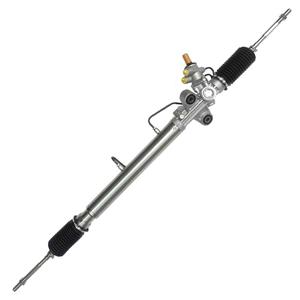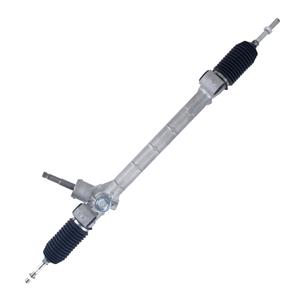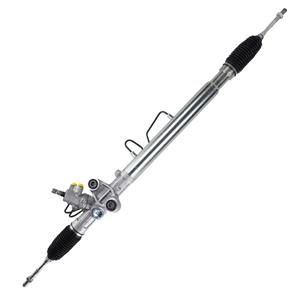What causes Mercedes-Benz power steering to be stiff?
The power steering system is an integral part of modern cars, providing drivers with a lighter steering experience, making it easier and more efficient to operate the vehicle. However, some Mercedes-Benz owners may encounter power steering stiffness during driving. Usually, the power steering system is designed to ensure that the vehicle can be easily turned at all speeds, but when there is a problem with the system, the driver may feel that the steering wheel becomes unusually heavy or even difficult to turn. This not only affects the driving experience, but may also pose a safety hazard.
So, what causes Mercedes-Benz power steering to be stiff? This article will explore the possible causes in detail and analyze them.
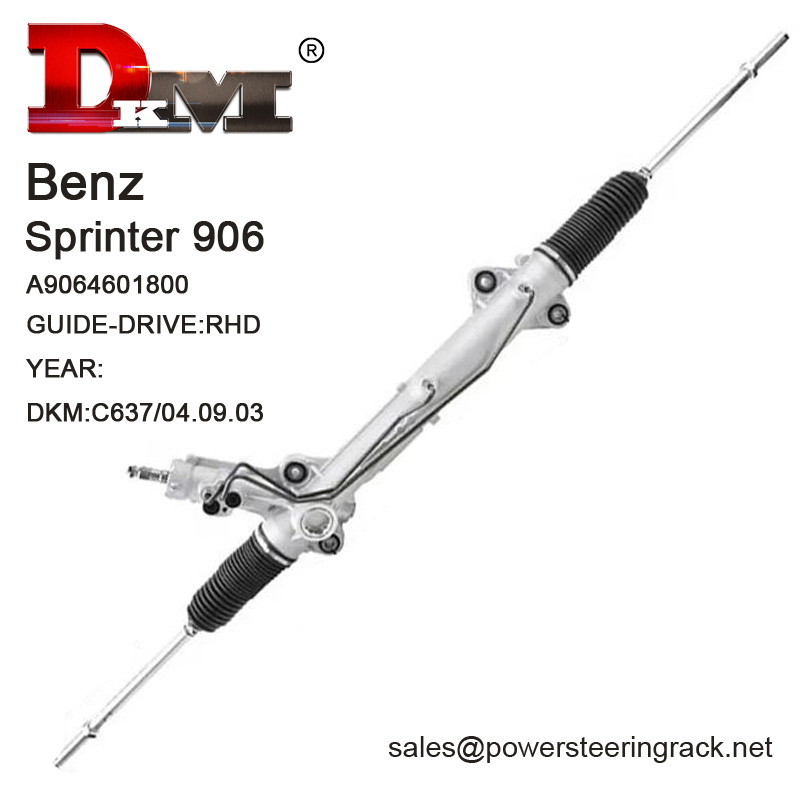
What is the principle of the power steering system?
Before understanding the reasons for the stiffness of power steering, it is necessary to briefly review the basic working principle of the power steering system. There are three main types of power steering systems: Hydraulic Power Steering (HPS), Electric Power Steering (EPS) and Electro-Hydraulic Power Steering (EHPS).
Hydraulic power steering system
Hydraulic power steering system assists the driver's steering operation through the pressure generated by the hydraulic pump. When the driver turns the steering wheel, the hydraulic oil acts on the steering rack through the pressure of the pump, reducing the force required to turn the steering wheel. This system is widely used in early Mercedes-Benz models.
Electric power steering system
The electric power steering system directly assists the turning of the steering wheel through the electric motor. Compared with the hydraulic system, the electric power steering system is more efficient because it only provides power when needed, instead of always running like the hydraulic system.
Electric-hydraulic hybrid power steering system
The electric-hydraulic hybrid power steering system combines the advantages of hydraulic and electric systems, and drives the hydraulic oil through an electric pump. This system retains the powerful power-assisting function of the hydraulic system and achieves more precise control through electronic control.
When there is a problem with the power steering system, the smoothness of steering will be greatly reduced, causing the driver to feel that the steering wheel is stiff and heavy. Therefore, the cause of the problem may be related to a key component of the above system.
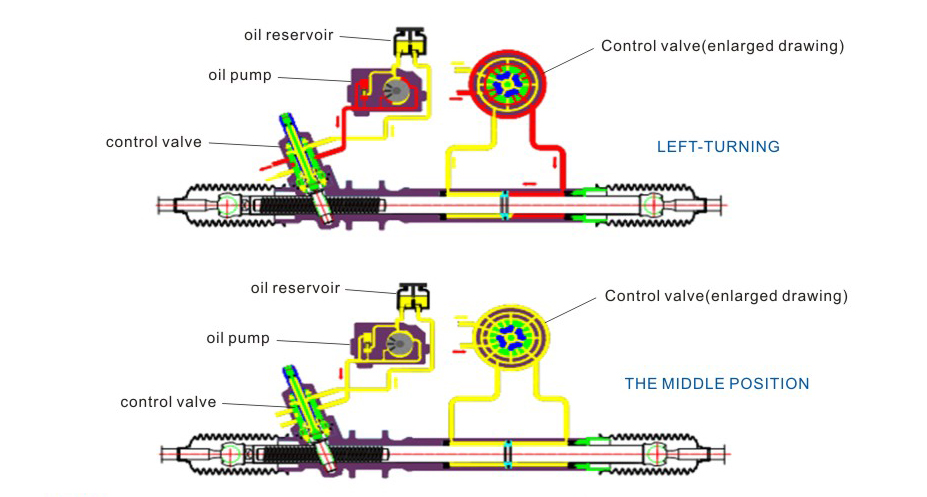
What is the cause of stiff power steering?
The reasons for stiff power steering are:
1. Insufficient or leaking hydraulic steering oil
2. Power steering pump failure
3. Steering rack wear or damage
4. Hydraulic oil quality problems
5. Belt problems
6. Air entering the hydraulic system
7. Tire problems
Insufficient or leaking hydraulic steering oil
Hydraulic oil plays a vital role in the hydraulic power steering system, providing the necessary pressure for the steering system. If the hydraulic oil level is too low, or the hydraulic oil leaks, the system will not be able to generate enough pressure to assist steering, causing the steering wheel to become heavy and stiff. Hydraulic oil leaks may usually occur in hydraulic hoses, joints, seals and other parts.
Power steering pump failure
The power steering pump is one of the core components of the hydraulic power steering system. It generates hydraulic pressure through belt drive. If the pump fails and cannot work properly, the pressure of the hydraulic system will drop significantly, and the steering assist function will also be affected, resulting in a stiff steering wheel. The causes of pump failure may include mechanical damage, loose belts, worn bearings, etc.
Worn or damaged steering rack
The steering rack is a key component that connects the steering wheel and the wheels. It transmits the turning action of the steering wheel to the wheels. If the gears of the steering rack are worn, stuck or damaged, the smoothness of the steering system will be affected, making it difficult to turn the steering wheel. In addition, insufficient lubrication of the steering rack may also cause increased friction, making the driver feel uncomfortable when turning the steering wheel.
Hydraulic oil quality problems
The quality of the hydraulic oil directly affects the normal operation of the steering system. If the hydraulic oil is not replaced for a long time, it may lose its proper lubrication and pressure transmission capabilities due to impurity deposition, oxidation and deterioration. This will cause the steering system to run unsmoothly and may even cause wear of the system, further aggravating the stiffness of the steering wheel.
Belt problems
The power steering system usually drives the hydraulic pump through a belt connected to the engine. If the drive belt is loose, worn or broken, the hydraulic pump will not be able to obtain enough power, resulting in insufficient pressure in the hydraulic system, which in turn affects the steering assist function. Belt problems are one of the common causes of power steering failure and steering wheel stiffness.
Air enters the hydraulic system
The oil circuit in the hydraulic system should be airtight, but if the system is not well sealed, air may enter the hydraulic line. Air will form bubbles in the hydraulic system, affecting the flow and pressure transmission of the hydraulic oil, which will lead to insufficient steering assistance. Air entering the hydraulic system is usually caused by aging, damage or improper maintenance of the seal.
Tire problems
Although tire problems may seem unrelated to the power steering system, in fact, insufficient tire pressure, uneven wear or tire specifications that do not meet the requirements may cause the vehicle to require more effort when turning, making the driver feel that the steering wheel is heavy. Therefore, ensuring that the tires are in good condition is also crucial to keeping the steering system working properly.
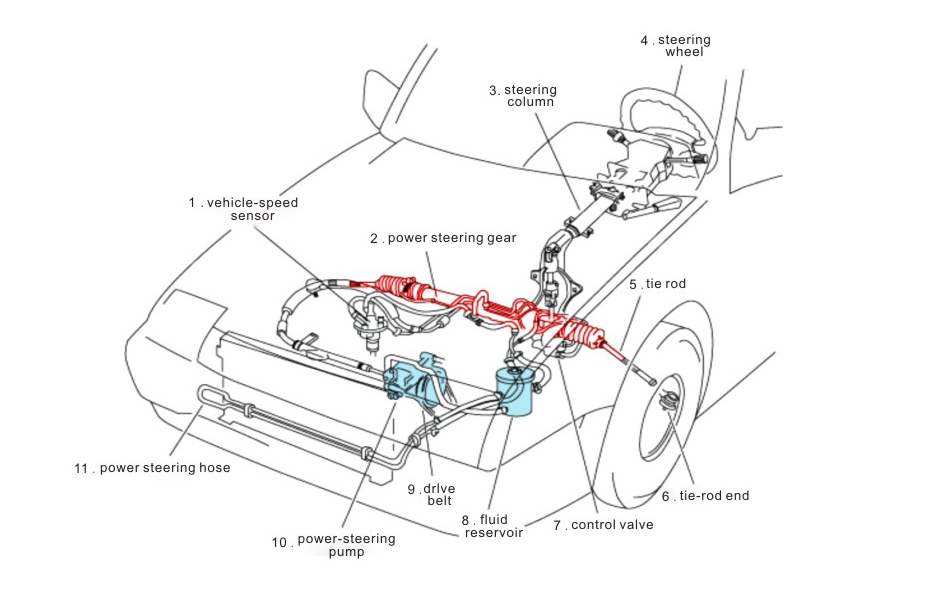
How to diagnose and solve the problem of power steering stiffness?
Check the hydraulic oil level and leakage
The simplest check is to check whether the hydraulic oil level is sufficient and check whether there are signs of hydraulic oil leakage in the engine compartment. If the level is too low, you can try to add hydraulic oil of the appropriate specification, but if the oil level continues to drop, it may indicate that there is a leak in the system and it needs to be repaired in time.
Test the working condition of the power steering pump
The working condition of the power steering pump can be preliminarily judged by observing whether there is abnormal noise or vibration when the steering wheel is turned. If the pump makes an unusual gurgling or other noise, it may be that the internal parts of the pump are worn or faulty and need to be repaired or replaced.
Check the steering rack and connecting parts
If the hydraulic oil is normal and the power steering pump is working well, you need to check whether the steering rack is worn or damaged. This can be done by raising the vehicle and observing the operation of the various parts of the steering system. If the rack or gear is obviously worn, the parts need to be replaced.
Replace the hydraulic oil
If the color of the hydraulic oil becomes cloudy or has a burnt smell, it may indicate that the hydraulic oil has deteriorated. At this time, you need to replace the new hydraulic oil and clean the residual impurities in the system to ensure that the oil circuit inside the system is clean.
Check the belt and tire
Regularly check the condition of the drive belt to ensure that it is in good working condition. If the belt is loose or damaged, it needs to be adjusted or replaced in time. In addition, check the tire pressure and wear, and inflate or replace the tire as needed.
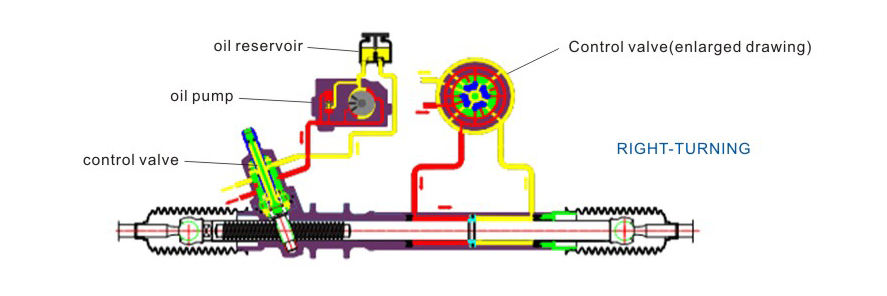
What are the potential risks of stiff power steering?
When the power steering system fails or the steering wheel becomes stiff, driving safety will be seriously affected. Difficult steering may cause the driver to be unable to quickly control the vehicle in an emergency, increasing the risk of accidents. In addition, if the problem is not resolved promptly, other components of the power steering system, such as the steering pump and steering rack, may be damaged due to continuous overload, further increasing repair costs.
If you’re sourcing premium automotive steering parts, DKM is your ideal partner. With over 25 years of experience, we manufacture high-quality power steering systems in our 20,000-square-meter factory equipped with 280+ CNC machines. Our products are widely used in vehicles from brands like Mitsubishi, Hyundai, and Isuzu. DKM serves clients worldwide with factory-direct pricing, wholesale options, and promotional discounts. We ensure consistent quality and fast delivery, making us a preferred supplier for distributors and OEMs. Contact DKM now for quotes and explore our customized solutions tailored to your purchasing needs!

